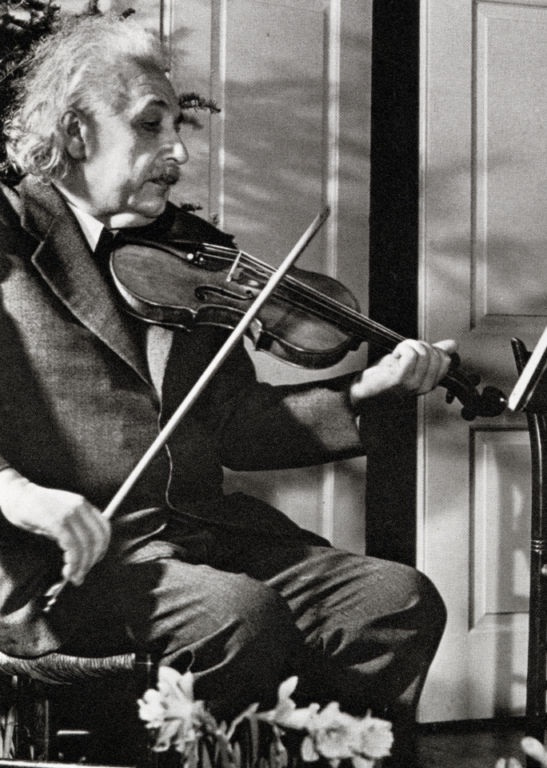Home Frank’s Blog Intelligence Having Fun: A Multi-Player Game to Re-define Creativity
Intelligence Having Fun: A Multi-Player Game to Re-define Creativity
Frank Fitzpatrick 07/16/2014

|
No time to read? Pick your language & press PLAY
Getting your Trinity Audio player ready...
|
It is a cloudy UK Sunday, and I’m looking out my train window across the scenic British countryside. I’m in route from to London from Canterbury, where I spent the past couple days with an international group of experts from academia and industry to explore the potential of video games to advance creativity, learning and musical expression. To lay some groundwork for the first day, I was asked to give the opening presentation on creativity.

Creativity is a big topic for me – not only because I have built my entire career out of my creative output, but also because I believe it is one of the most important qualities we can support and cultivate in our children throughout their development and education. Creative ability is what will allow kids to be more resourceful in the world, to adapt more easily to flux, and to live more satisfying and inspired lives. It can also be key to helping them thrive in science-based fields like physics, technology and medicine. In business, creativity – especially in the context of innovation and market adaptation – is all the rage again, ranked by leading Fortune 500 CEO’s as one of the most important attributes of tomorrow’s leaders. Whether we are looking at business, education or even politics, we will need creative visionaries at the helm to navigate the challenges that lie ahead.
With all the talk about creativity, however, one might expect a more widely accepted definition. There is a blurred line, in many cases, in the basic delineation between creativity and innovation. Some experts differentiate by claiming that innovation has more to do with repurposing or reorganizing existing resources in a new and creative fashion. Although proponents of that theory might place Steve Jobs at the top of the innovator list, many would argue that Jobs’s ability to integrate existing technological breakthroughs into beautiful, original and user friendly designs is a mark of creative genius.
I believe they are all correct to some extent. Creativity, like water flowing in a stream, is more of a continuum than a fixed or definable state. So I’m going to start at the source of the spring – at the beginning of that continuum, by first defining creation:
Cre•a•tion (v) act of bringing something into existence.

Creation is what I sometimes refer to as pure creativity – the bringing into existence that which didn’t exist before. For an artist, this creative process, or act of creation, might start with a spark of an idea and a blank white canvas or sheet of paper. As a composer, it sometimes begins with hearing a melodic motif inside my mind – that single sonic seed that can take on life and eventually blossom into an entire film score.
Although other ways of making and performing music (i.e. producing a remix, arranging an existing composition, or playing an instrument) are forms of creative expression, they are not an act of creation by our definition here.
Pure creativity can be described at the energetic level. Creation is the transformation of something from an invisible energetic state (an idea) into a state that is manifested in the world for others to experience (an invention, a piece of music, a painting…).
So is video game playing a form of creativity? I guess it depends on what you are creating. Some games allow for higher degrees of creative expression within the game, while a select few, like the upcoming Fantasia: Music Evolved, allow you to create something that you can keep or share when the game is over. What good games and challenging game playing can do, however, is stimulate creativity by awakening the imagination of the player, thus opening their minds to a new range of possibilities. The addition of physical controllers, as with Wii or Xbox Kinect, gives us the opportunity to engage our bodies and kinesthetic processes that can further stimulate creativity.

The purest creative experience might actually come when the player puts the video game aside and goes to create their own game or creative work – one than emerges from a spark of their imagination (an idea) that was triggered by the experience of playing. There are massive online communities of gamers and game fans where these creative individuals can freely share their ideas through videos, graphics, and musical selections.
It will be fascinating to see what ideas evolve out of the Fantasia game community, once they start creating and sharing their own remixes, animated videos, and even satires. Beyond the seemingly unlimited combinations of musical and visual ideas that can be generated by playing, and the audio and video output formats allowed by the game makers, there will inevitably be a wide range of mashups with outside content created and shared by the game community.
I don’t personally think video games will re-define creativity, but I do believe they can offer a whole new range of opportunities for people, especially those who might be intimidated or unengaged by more traditional pathways, to enjoy the experience of creative and musical expression.
Links:
- AHRC Network
- Roundtable event, Education: Disrupted
- Creativity and Music in the Huffington Post
View this article on Huffington Post.
I’m here to help YOU create a better world, inside and out.
Contact Me© 2025 Frank Fitzpatrick Website by AllHereIndia












